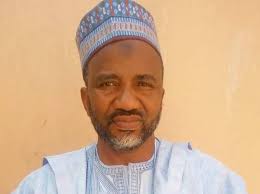Nigerians have been crying loud for free, fair, credible and acceptable elections in the eyes of the world since its independence 61 years after. It has been said that no nation and kingdom has ever risen beyond the capacity of its leadership.
This means that for Nigeria to grow socially, politically and economically better alternatives that are aimed at improving our elections should be encouraged by political stakeholders. Electronic voting and electronic transmission of election results should be introduced as one of the practical solutions to most of the malpractices that mar the process of selecting political leaders in Nigeria.
It is believed that an election plays the most important role in sustaining a democratic system anywhere in the world, particularly in developing countries like Nigeria. Free, fair and credible elections have become a parrot cry not only to the electorate but even the contestants. Nigeria is ethnically heterogeneous and culturally pluralistic, making it practically impossible for government’s agencies to take measures that would serve the interests of entire perfection as an attribute of the Almighty God but some other climes incorporate more technologies to improve their elections.
The developed countries Nigeria is currently copying has for long accepted that it is only a process that gives room for free and fair election that holds government responsible and forces it to behave in voters’ interest.
The e-voting and e-transmission of results have remained a dominant issue of national discourse though priorities are shifted to our deversity instead of national interest. The uproar in the Nigerian Senate and House of Representatives over these amendments speaks in high volume the level of conspiracy against our baby democracy.
Nigeria is battling with these traits of division and divisiveness at the time most countries of the world have moved thousand miles away from the ancient Greece and ancient Rome where Medieval rulers such as the Holy Roman Emperors were selected through manual process.
However, some scholars opine that election itself is not enough to hold politicians responsible if the institutions are not shaping incentives in a way that earns the trust and confidence of the electorate. Acceptable elections give room for more productivity in governance as the citizenry would blame themselves rather than the government.
Trouble started when the red chamber attempted to amend Clause 52(3) of the new Electoral Act. The joint National Assembly Committee on INEC and Electoral Matters had recommended that INEC should reserve the power to transmit results by electronic means where applicable on the day of the election. Section 52(3) as originally recommended provides: The commission may transmit results of elections by electronic means where and when practicable. The amendment agreed on eventually is that the commission may consider the electronic transmission of results provided the National Network Coverage is adjudged to be adequate and secure by the National Communication Commission and approved by the National Assembly.
Former Chairman of the Independent National Electoral commission (INEC) Professor Attahiru Jega raised concerns that electronic voting without electronic transmission of results is counter productive and may affect the credibility of future elections in Nigeria.
I share his perception on this and there is need to support all processes that may improve transparency and accountability in our future elections as the 2023 general elections are fast approaching. To me, the decision of the House of Representatives to call on INEC to address the House on its readiness by 2023 to deploy electronic transmission technology for our elections is highly commendable.
As leaders of an advocacy group of young northerners, we use mostly digital means to sensitise our youths on the need to restructure their minds to give peace a chance. It is high time Nigeria developed a frame work that will ensure that our votes count so as to increase community participatory democracy. The Nigerian Senate has approved N4.86 billion for the National Intelligence Agency to track SMS, WhatsApp and calls of Nigerians targeted at criminal elements like bandits/kidnappers, Boko Haram kingpins, etc. Those that are testing the strength of our state apparatus are the focus of this project as against the narratives of exclusion by the opposition that it is targeted at the citizens.
The government is commended in this phase and the need to restructure other agencies to move the entire country from the analogue to digital status. It is high time issues of national importance are accorded national interest as against personal interest exhibited mostly by those in positions of authority.
Nigerians have been made to believe that this crusade is a calculated attempt to short-change a particular region in the 2023 elections. This shallow thinking has for long remained an albatross that has denied us access to our destiny. I watched the proceedings of the House of Representatives where the minority members staged a walk out as the amendment was passed amidst protest, raising so many controversies. For how long will our electorial process be subjected to the 19th century fashion of manual voting? It is high time Nigerians began to think outside the box and support policies and programmes aimed at improving our electoral process.
As a concerned Nigerian, I appeal to the executive, the legislature and INEC to collaborate and develop a framework that will give room for electronic voting and electronic transmission of results in Nigeria in no distant time. This will increase the transparency of elections as rigging will be drastically reduced, hijacking of election results by political elite, particularly those that pocket resident electoral commissioners in their states, will be eradicated.
Mohammed, is the National President, Arewa Youths Advocate for Peace and Unity Initiative, writes from Bauchi via [email protected]




